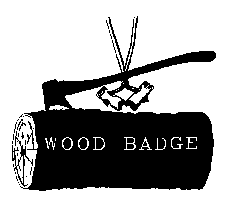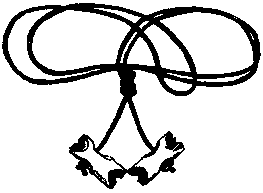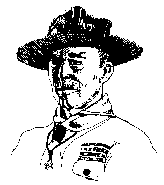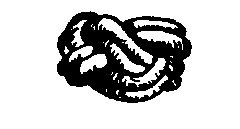Clan MacLaren and the Scouting Connection
View More Scouting Articles at: Gilwell Field
 Scouting began in England in 1907 on a small island located near Poole, England, called Brownsea.
The leader was the youngest major general in the British Army and a national war hero for leading
the defenders of the nearly year long siege of Mafeking during the Boer War in South Africa
Scouting began in England in 1907 on a small island located near Poole, England, called Brownsea.
The leader was the youngest major general in the British Army and a national war hero for leading
the defenders of the nearly year long siege of Mafeking during the Boer War in South Africa
This war hero was Robert Stephenson Smyth Baden-Powell and his assistant at Brownsea was his long-time friend, Major Kenneth MacLaren. In 1908, when the Scout Association was formed, Major MacLaren became its first Secretary.
Scouting simply took off and soon was spreading rapidly throughout not only the United Kingdom but also the world. The modest experiment of Brownsea with its 21 boys expanded beyond its founder's dreams. But Baden-Powell felt that there was an area of the Scouting program that needed attention. Scouting needed trained leaders to look after its Scouts. To that end, a search was made for a place to establish a "training centre." A Scout commissioner from Rosneath, Dunbartonshire, Scotland, near Glasgow, came to the rescue. William F. de Bois MacLaren (no relation to Major Kenneth MacLaren) purchased a derelict estate near Epping Forest near the town of Chingford (about an hour from London) and presented Gilwell Park to the Scout Association in July 1919. Scouting now had its training facility.
In September 1919, the first Scout Officers' Training Course took place. Adult Scouters spent 11 days camping at Gilwell Park doing things in the same fashion as the 21 boys did at Brownsea 12 years earlier. The participants used the Patrol Method devised by Baden-Powell to accomplish the many varied tasks that this training program presented. When it was over, Baden-Powell was in a quandary over how to recognize these leaders for the completion of his training course. He remembered a long string of curiously carved, small wooden beads that he had recovered as a military souvenir from his South African military days. He decided to present one of these beads to each leader that completed the training course. This training program soon acquired its familiar name from these small, curiously carved wooden beads - Wood Badge.
The first Wood Badge beads were worn on the end of a leather thong suspended from the buttonhole of the uniform coat or shirt, then the beads were attached to the ends of the Scouter's hat cords, but then they would only be seen when the Scouter wore his hat!� This shortly changed to the beads being attached to a leather thong that could be worn as a necklace with one bead on each end of the thong as pendants.
 The Wood Badge
At first, in honor of Commissioner MacLaren's generous gift of Gilwell Park, the Gilwell Park staff members wore neckerchiefs of full MacLaren tartan. However, to reduce the high cost of these neckerchiefs, one of dove grey cloth with a warm red lining and a patch of ribbon in MacLaren tartan at the point was adopted. After 1924, this neckerchief was restricted to Wood Badge holders only, a tradition that remains to this day. (The Boy Scouts now have their own tartan, based on the MacLaren tartan.) This neckerchief is held together with a special leather thong Turk's head knot "woggle," or neckerchief slide originally conceived at Gilwell Park by a young staff member, Bill Shankley, about 1920. These three unique symbols: the carved wood beads, the neckerchief with a piece of ribbon in MacLaren tartan, and the woggle continue to be used today around the world by Scouters in over 120 countries that have Scouting programs.
Woggle
The seeds of Scouting were planted on a small island with the help of a MacLaren. A short time later, another MacLaren gave the world the place where Scouting was nurtured and became its worldwide home, Gilwell Park. Today, Gilwell Park, in Essex, is the principal training centre for British scout leaders.
The Clan MacLaren Society of North America has established a special associate (non-voting) membership for any Scouter who has earned his or her Wood Badge. Wood Badge membership in the Clan MacLaren Society of North America (CMSNA) is therefore extended to all Wood Badge-trained Scouters who have completed their "ticket" and have received their Wood Badge beads. Pick up a membership form at the Clan MacLaren tent at a Highland Games. Or, download an application from here ( please include your Wood Badge Course Number! ).

Baden-Powell
|



 Scouting began in England in 1907 on a small island located near Poole, England, called Brownsea.
The leader was the youngest major general in the British Army and a national war hero for leading
the defenders of the nearly year long siege of Mafeking during the Boer War in South Africa
Scouting began in England in 1907 on a small island located near Poole, England, called Brownsea.
The leader was the youngest major general in the British Army and a national war hero for leading
the defenders of the nearly year long siege of Mafeking during the Boer War in South Africa
